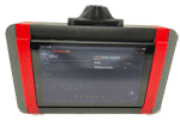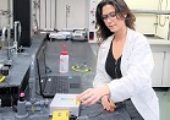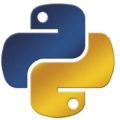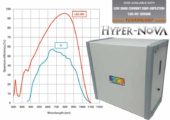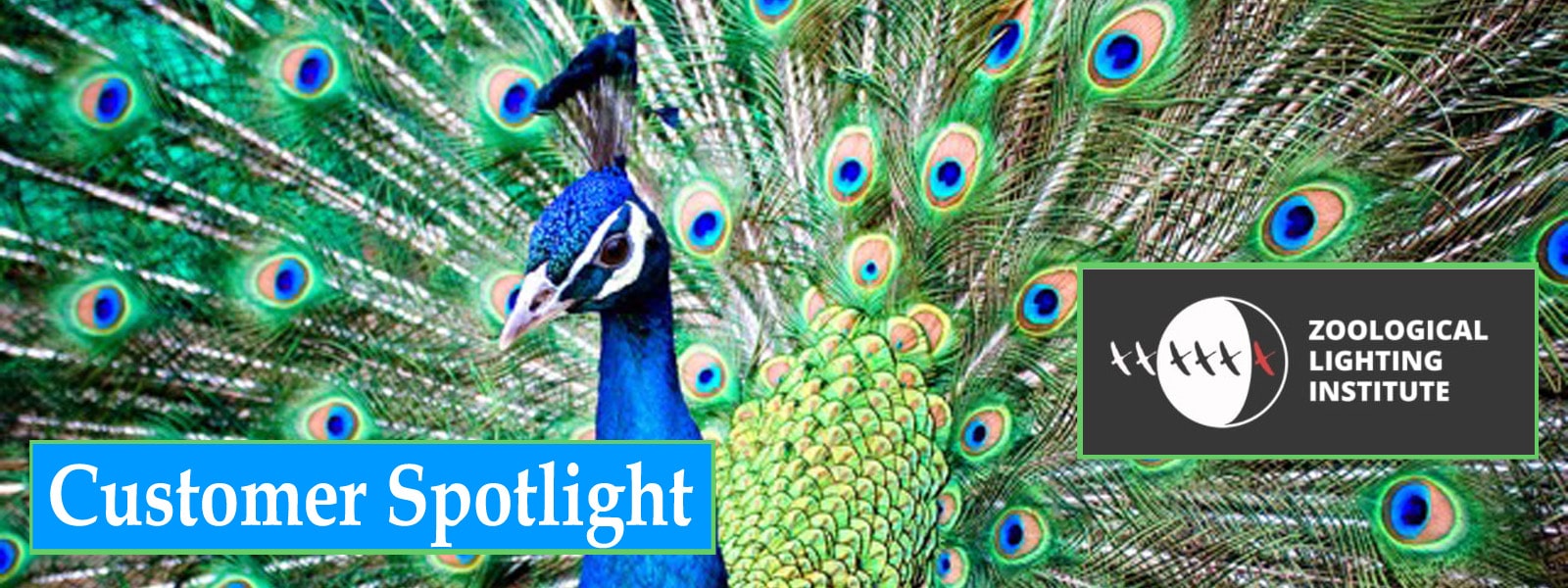
The Zoological Lighting Institute maintains a mission to support photobiology research for animal husbandry and wildlife conservation purposes.
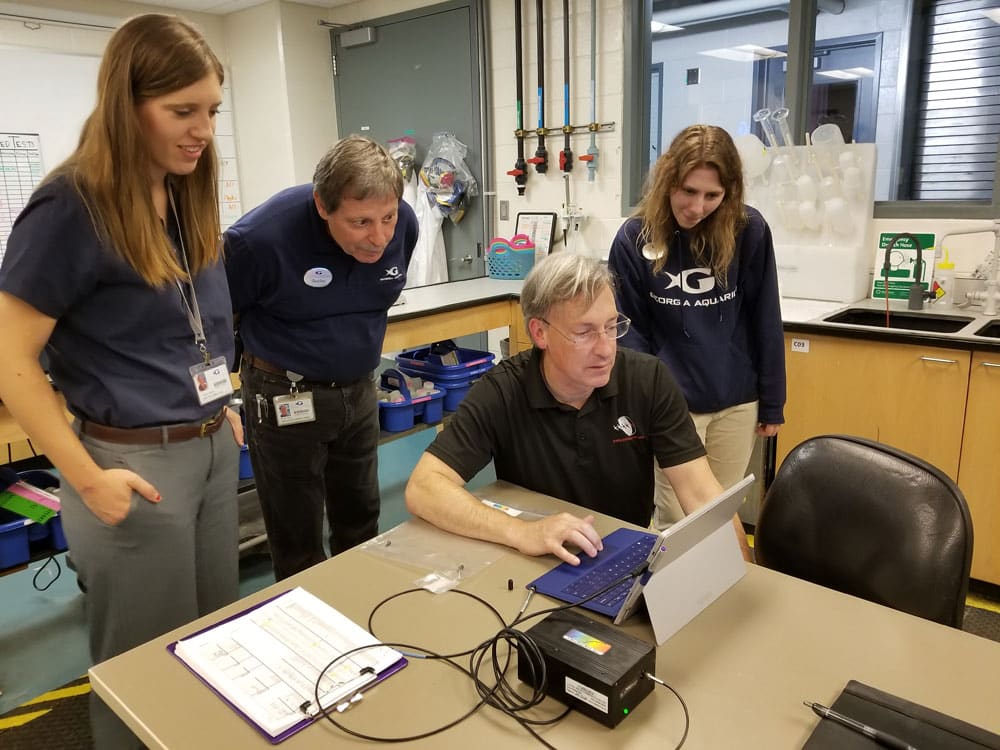
“Animal care depends on good science, and good science is produced by data driven by proper measurements. StellarNet’s team has been very good and incredibly supportive of our mission at ZLI.”
– Zoological Lighting Institute
– James Karl Fisher, Ph.D. & Founder, shown here using a StellarNet spectrometer with members of the Georgia Aquarium
The Zoological Lighting Institute (ZLI) is a charitable organization that maintains a mission to support data driven photobiology research for animal husbandry and wildlife conservation purposes. ZLI has been a StellarNet customer for many years, and includes StellarNet’s spectrometers in its professional lighting measurement kits. The founder and President of ZLI, Dr. James Karl Fisher, spoke with us about the ZLI, it’s mission, it’s focus on data-driven research and the importance of measuring light, and how StellarNet has been a partner in that mission.
ZLI’s Four Main Goals
Dr. Fisher began by speaking of ZLI’s purpose, “As a 501(c)3 nonprofit, we at ZLI are focused on four main goals,” Fisher said. The first goal is datadriven: an advanced lighting measurement program, to identify the baseline natural light criteria.” As part of that data-driven mission, the ZLI offers professional lighting measurement kits: a terrestrial mspectrometer kit, a quality, quantity and structure kit, and the add-on health assessment kit, all of which include spectrometers for light measurement.
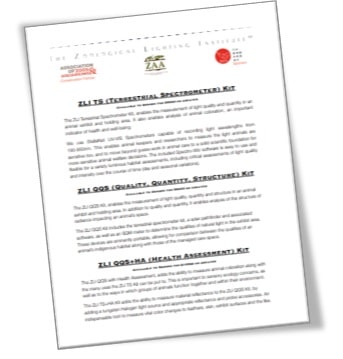

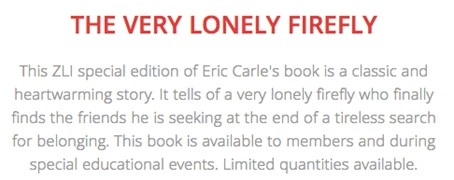
Zoological Lighting Education
The second goal is education, which addresses four audiences:
- Professional education – “teaching designers”
- Family and Youth Education – teaching the basics of the physical world, of light, and how people interact with it
- Continuing education – “because education doesn’t stop at college”
- Research education – “Providing scholarships is a central part of what we do,” said Fisher. “It helps to guide the research to explore the physical relationships of light and life.”
Filmmaking
Filmmaking is the third goal of the ZLI. The first film produced by the ZLI is ‘Brilliant Darkness: Hotaru In The Night’ is about the effects of light on fireflies in Japan and the U.S. The ZLI also sponsors film festivals that communicate the existing understanding of light and life. “Films help develop new thinking about lighting, making it accessible to communities and the public,” Fisher says. “Our next film project will be about sea turtles,” he adds. All seven species of the world’s sea turtles are endangered, and while they spend their lives in the sea, all turtles begin life by hatching on a beach. When the turtles hatch from their eggs, the turtles rely on the light reflecting off the water to guide their path to the sea. Artificial lighting, from resort hotels, streets and homes, can confuse the turtles, leading them away from the water and towards dangers like predatory birds and land mammals. In Stellarnet’s home state of Florida, the effects of artificial beach lighting on sea turtle nesting is a known impact, and some communities implement turtle-friendly lighting during nesting months.
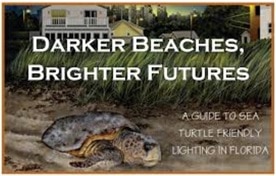

ZLI’s film, “Brilliant Darkness,” has been shown at film festivals around the world since it’s premier at the 2015 Wild and Scenic Film Festival, where it won the Staff Pick award. Watch the trailer:
http://www.photodiversity.org/productions
Brilliant Darkness: Hotaru in the Night explores the importance of darkness, and erosion of it, through the study and preservation of firefly habitats in Japan and the United States. Fireflies disappear as artificial night-lights disrupt their ‘languages of light’. The film features artists and scientists on different continents working to understand firefly flash patterns and how to live among wildlife in urban settings.
‘Brilliant Darkness’ on NPR’s Science Friday
Fireflies inspire appreciation of nature at night across cultures. In this clip produced for NPR’s Science Friday, narrators explain firefly “languages of light”. http://www.brilliantdarknessmovie.com/about-fireflies
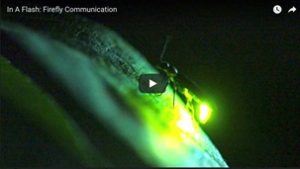
Organizations can support ZLI by hosting screenings and individuals can buy the DVD or download. http://www.zoolighting.org/swag
Design Services
The fourth goal, and service, of the ZLI is design consulting. “Measurement is a key component in our design service,” James says. The design consulting service provides guidance to zoos, aquariums, and architects. Natural light always comes first, and “because of that, we measure. We have to know what the light is, not the lighting. One of the flaws of lighting design is that it doesn’t look at the light.”
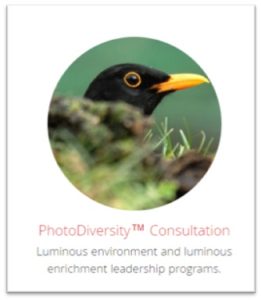 “We insist on lighting measurements as part of the design process,” James said. “It’s called commissioning. It is similar to the LEED certification given to environmentally friendly buildings. Commissioning is very different than what other designers do; commissioning is a continuing process that once we design, we continue to look at the whole space as it evolves.”
“We insist on lighting measurements as part of the design process,” James said. “It’s called commissioning. It is similar to the LEED certification given to environmentally friendly buildings. Commissioning is very different than what other designers do; commissioning is a continuing process that once we design, we continue to look at the whole space as it evolves.”
“We would never say, ‘this is the right light bulb for this animal’,“ James says. What the ZLI consulting design would do is to provide information about the natural lighting state of an animal.
“Take for example a grizzly bear,” James says. “In spring, the grizzly bear goes towards an aquatic ecosystem, where there are different light conditions than the fall, which is spent under trees, with shorter days. All of that fits into the animal’s natural environment.”
Rather than giving a lighting code, “This is how much light is acceptable,” ZLI provides data-driven information like, “This is what a natural range is here, and how does the lighting for this building modify that?” That’s a design service that is very different than what other services are doing (James is an architect by training).
“The only way to do that kind of design service is to measure the light, which brings us back to StellarNet,” James says.
Why StellarNet Spectrometers?
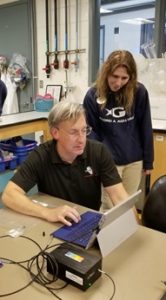 The first reason, according to Dr. Fisher, is StellarNet’s team. “The company has been very good and incredibly supportive. The team has been very engaged,” he said. The second reason: the products. “The products are very good. The convenience of use of the handheld spectrometers is remarkable.” The third reason: affordability. “Affordability is so important, especially for the zoo and aquarium audience. We want them to get in the habit of taking light measurements as part of animal husbandry. Having a StellarNet Black-Comet spectrometer at their fingertips is only possible if it is affordable.” “We take two different kinds of measurements:
The first reason, according to Dr. Fisher, is StellarNet’s team. “The company has been very good and incredibly supportive. The team has been very engaged,” he said. The second reason: the products. “The products are very good. The convenience of use of the handheld spectrometers is remarkable.” The third reason: affordability. “Affordability is so important, especially for the zoo and aquarium audience. We want them to get in the habit of taking light measurements as part of animal husbandry. Having a StellarNet Black-Comet spectrometer at their fingertips is only possible if it is affordable.” “We take two different kinds of measurements:
(1) Spectral irradiance across day and night; taking measurements every few hours to understand the natural light environment, possible over a week, and during different times of year. (2) A simple camera measurement, with the filter stripped off.” There are several other aspects of the spectrometer that could be used if available to zoos and aquariums: caretakers and scientists could look at the coloration of the animals, and see changes due to diet and health.
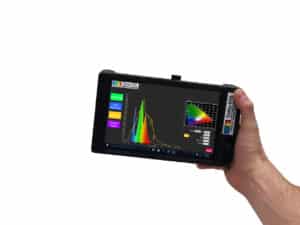 So what’s next for the partnership? “I would love to have an inexpensive yet accurate and repeatable handheld device that interacts with a cell phone, and get that instrument into the hands of keepers,” Dr. Fisher says. “That would be the ultimate product.”
So what’s next for the partnership? “I would love to have an inexpensive yet accurate and repeatable handheld device that interacts with a cell phone, and get that instrument into the hands of keepers,” Dr. Fisher says. “That would be the ultimate product.”
Jason Pierce, Director of Business Development at StellarNet says they are working on just that. “Currently we already offer a handheld system known as the StellarRAD which contains a spectrometer and onboard  tablet computer package in a robust case. We are working on a new technology using our ZAP2 wifi upgrade to remove the requirement for an onboard tablet and allow users to stream data direct to their cell phone!”
tablet computer package in a robust case. We are working on a new technology using our ZAP2 wifi upgrade to remove the requirement for an onboard tablet and allow users to stream data direct to their cell phone!”
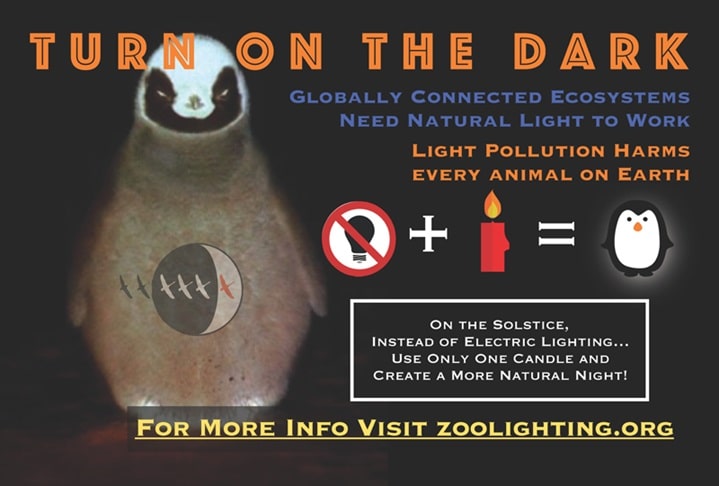
How You Can Help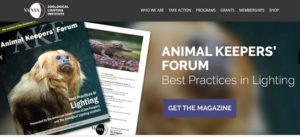
The ZLI is a non-profit, and as such, hosts a number of fundraisers through the year. These fundraisers include events on the solstice and equinox, brilliant nights programs, and one candle, a social bonding night that helps to “Take away the anxiety of the natural night.” If you’re interested in supporting ZLI, there are a number of ways, including purchasing a DVD of “Brilliant Darkness” http://www.zoolighting.org/swag, becoming a member of ZLI http://www.zoolighting.org/individual-memberships , or simply turning off lights that you don’t need during the night.
About Dr. James Karl Fisher
James Karl Fisher, Ph.D. is the founder, executive director and president of the Zoological Lighting Institute (ZLI). An architect holding a Doctorate in Philosophy from the Architectural Association (London), Dr. Fischer has lectured across the US, UK, Indonesia, Japan, Nepal, Poland and Australia on the importance of natural light for biodiversity loss mitigation. Having served as RIBA (Royal Institute of British Architects) Council and as RIBA, US Region President, he has also argued for the accountability of, and participation by, architects in matters related the built environment.(http://www.zoolighting.org/about)
About StellarNet, Inc.
StellarNet, Inc. is a Global provider of low cost compact spectrometers, systems, and software for product analysis, research, education, and OEM. StellarNet instrumentation is research grade and rugged for any environment – lab, process, or field. (www.StellarNet.us)


